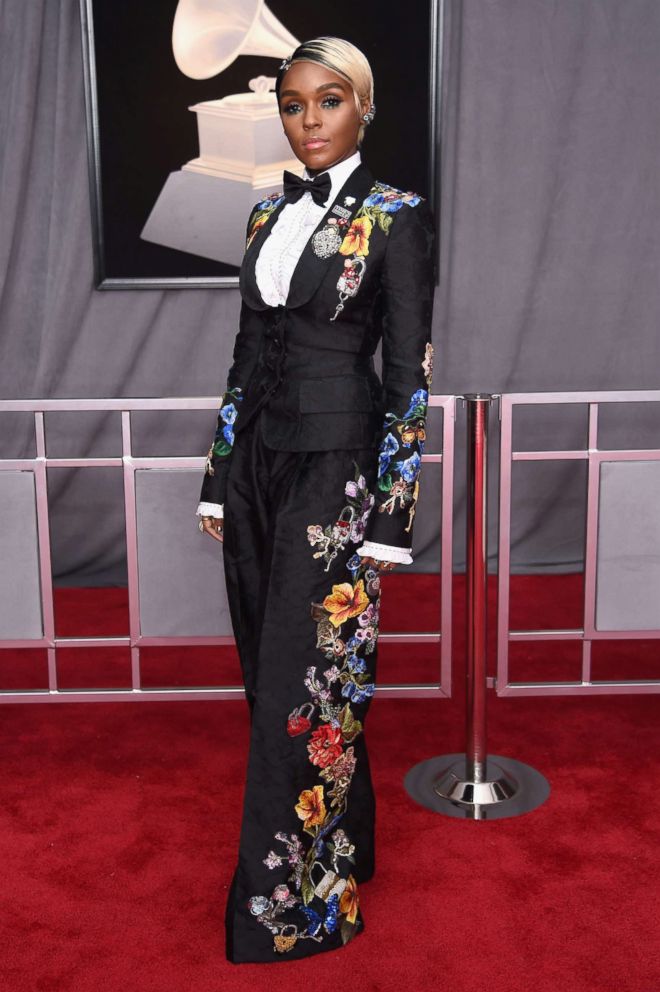R&B star Janelle Monae brings Time's Up movement to Grammys
She said it's time to tackle inequality and harassment in the music industry.
— -- Superstar R&B singer Janelle Monae brought the "Times Up" women's empowerment movement to the Grammy Awards on Sunday with a powerful speech that declared it time to tackle issues of inequality, discrimination and sexual harassment within the music industry.
“I am proud to stand in solidarity as not just an artist, but a young woman with my fellow sisters in this room who make up the music industry,” Monae said in a speech before introducing the next performer. “We come in peace, but we mean business. And to those who would dare try and silence us, we offer you two words: Time's up.”
“We say time's up for pay inequality, time's up for discrimination, time's up for harassment of any kind and time's up for the abuse of power. Because you see, it's not just going on in Hollywood, it's not just going on in Washington, it's right here in our industry as well,” the singer, actress and music producer added.

Monae, a six-time Grammy Award nominee, also urged members of the music industry to "unite" and “undo the culture that does not serve us well.”
“Just as we have the power to shape culture, we also have the power to undo the culture that does not serve us well,” she said. “So, let's work together, women and men, as a united music industry committed to creating more safe work environments, equal pay, and access for all women.”
“And as we do, as artists, our next performer embodies the great tradition of delivering important social messages through their music,” she said, introducing Kesha, who went on to perform a heartfelt rendition of her song “Praying.”
Kesha's performance drew a standing ovation and brought some, including host James Corden, to tears.
Monae was one of the few artists to mention the Time's Up movement during their time on stage, while others -- including Kelly Clarkson, The Chainsmokers, Imagine Dragons and Lady Gaga -- showed support for the movement by wearing white roses on the red carpet.
Music executives had previously emailed attendees asking them to wear the roses to signify support of the battle against abuse and sexual harassment.
"It is an important conversation politically in our country and it's also a conversation we need to have internally with our artists and our companies," Roc Nation Senior Vice President Meg Harkins, who helped organize the red carpet demonstration, told Billboard last week.
"We need to say if anyone is feeling like they're being discriminated against and they don't feel safe in their workplace, they have people who will support them," she added.
The awards ceremony also featured political moments from Hillary Clinton and rapper Kendrick Lamar.
Clinton made a surprise cameo about two and a half hours into the show as a part of a skit where celebrities read excerpts from Michael Wolff’s “Fire and Fury” book about the Trump campaign and White House.
Lamar, who took home three Grammy Awards this year, opened the show with a dramatic performance that featured a large American flag, military gear and dancers in hoodies who fell on the ground to the sounds of gunfire.




